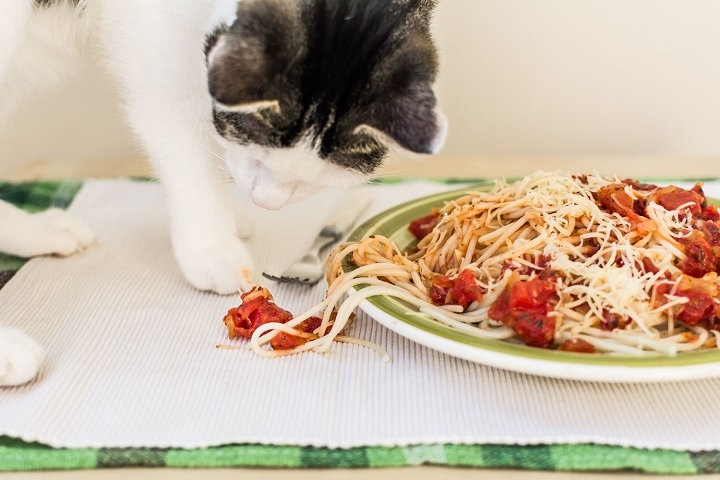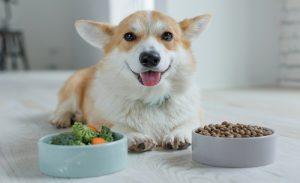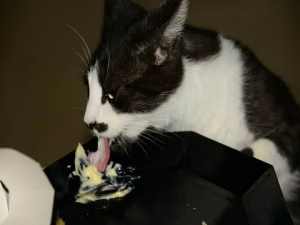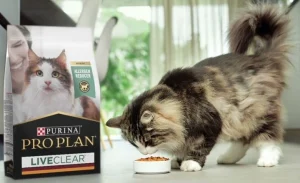Spaghetti is a comforting, carb-loaded favorite for many humans—but when your cat hops up to sniff your plate, you might pause and wonder: can cats eat spaghetti? While cats are known for their curious nature (especially around food), that doesn’t mean every human meal is safe or suitable for them.
This guide explains whether spaghetti is safe for cats, what happens if they eat pasta with sauce, and better food alternatives that won’t upset your feline’s stomach.
Is Spaghetti Safe for Cats?
Plain spaghetti noodles—cooked without seasoning, sauce, or additives—are not toxic to cats. So yes, cats can eat plain spaghetti in very small amounts. But just because it’s not toxic doesn’t mean it’s healthy or recommended.
Cats are obligate carnivores. This means their bodies are built to thrive on meat-based protein and fat—not carbohydrates like pasta. Spaghetti offers no real nutritional benefit and can even lead to digestive issues or weight gain if fed regularly.
What’s in Spaghetti and How It Affects Cats
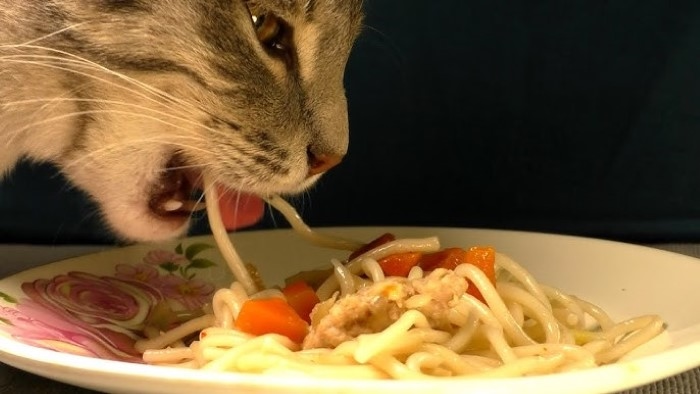
Refined Carbohydrates (Wheat Flour)
Spaghetti is primarily made from wheat flour, which breaks down into simple carbohydrates. Unlike humans, cats don’t have a biological need for carbs. In fact, their bodies struggle to efficiently process large amounts of starch.
Excess carbs can contribute to:
- Weight gain
- Blood sugar spikes
- Increased risk of feline diabetes
Salt and Seasoning (In Sauced Pasta)
Spaghetti dishes often come with sauces loaded with salt, garlic, onion, and spices. These ingredients are harmful—and sometimes toxic—to cats.
- Garlic and onions can damage red blood cells and cause anemia
- Salt can lead to dehydration and kidney stress
- Spices like chili or pepper can irritate your cat’s digestive tract
Fats and Oils
Spaghetti may be tossed in olive oil, butter, or meat fat. While cats do need fat, the type and amount in spaghetti isn’t balanced for their needs. Too much fat may result in:
- Vomiting
- Diarrhea
- Pancreatitis in severe cases
Dairy (In Creamy Sauces)
Alfredo or cheesy pasta sauces contain dairy, which many adult cats can’t digest properly. Even a few licks can cause:
- Gas or bloating
- Upset stomach
- Lethargy
Can Cats Eat Spaghetti Sauce?
No, cats should not eat spaghetti sauce. Most sauces contain garlic and onion—both of which are toxic to cats. Even small amounts can lead to poisoning over time.
Tomato-based sauces may also contain sugar, preservatives, or salt that your cat’s digestive system can’t handle.
Important: Never feed your cat marinara, meat sauce, Alfredo, or any store-bought pasta sauces.
What If My Cat Ate Some Spaghetti?
If your cat snuck a small piece of plain spaghetti, they’ll likely be just fine. Here’s what you should do:
- Monitor for 24 hours to watch for vomiting or diarrhea
- Offer fresh water to help with digestion
- Avoid giving more pasta—don’t turn it into a treat
If your cat ate spaghetti with sauce (especially garlic or onion), call your vet and explain the ingredients and quantity consumed.
Can Kittens Eat Spaghetti?
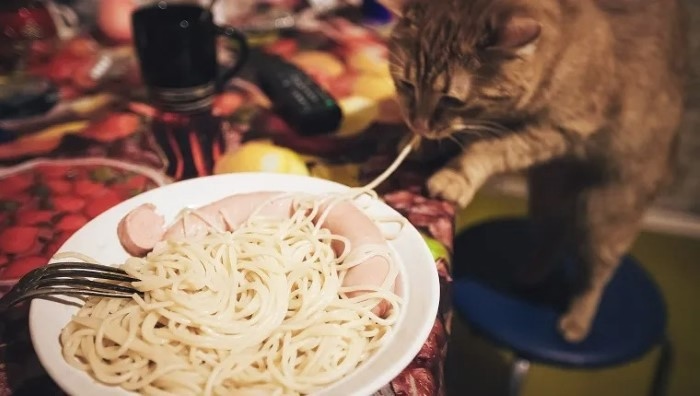
Kittens should not eat spaghetti. Their digestive systems are even more sensitive than adult cats. High-carb foods like pasta can lead to stomach upset, poor nutrient absorption, and bad feeding habits during a critical stage of development.
Is Spaghetti Ever Good for Cats?
In a nutritional sense, no. Spaghetti does not provide the essential proteins, vitamins, or taurine that cats need. Even though it’s not toxic in small amounts, it’s not a good addition to a cat’s diet.
If you’re looking for soft, chewy textures for your cat, it’s better to go with meats or cat-friendly wet foods that mimic the texture of pasta—without the unnecessary carbs.
Why Do Cats Try to Eat Spaghetti?
Cats are curious creatures. They may be drawn to:
- Smells from meat, sauce, cheese, or butter
- Textures of cooked pasta
- Imitation (they want what you’re eating)
While it’s cute, it’s best not to encourage this behavior with human food. Once cats associate your food with treats, it can lead to begging, food stealing, or eating something harmful.
Better Alternatives to Spaghetti for Cats
Cooked Chicken or Turkey (Unseasoned)
Rich in protein, easy to digest, and perfect for carnivores.
Canned Tuna in Water (Occasional Treat)
High in protein and omega-3s, but only in moderation due to mercury levels.
Plain Scrambled Eggs (No Butter or Salt)
Eggs provide a protein boost and are gentle on the stomach.
Freeze-Dried Cat Treats
These mimic meat textures and are specially designed for feline nutrition.
Cat-Safe Broth or Gravy
Made without onion, garlic, or excessive salt. These add flavor without the danger.
How to Keep Cats Away from Human Food
- Keep food covered or stored properly
- Train your cat to stay off counters and tables
- Use puzzle feeders and cat treats during your own mealtime
- Discourage sharing habits with family members
- Offer feline-friendly snacks to redirect their attention
FAQs About Cats and Spaghetti
Can cats eat spaghetti noodles?
Yes, plain noodles in small amounts are not toxic—but they’re not healthy and should only be offered occasionally.
Is pasta sauce harmful to cats?
Yes, especially if it contains garlic, onion, salt, or sugar. Even small amounts can be dangerous over time.
What happens if a cat eats garlic?
Garlic is toxic to cats and can cause gastrointestinal issues, anemia, and in severe cases, organ damage. Call your vet if garlic was consumed.
Can cats have buttered noodles?
No. Butter is high in fat and can upset your cat’s stomach. There’s also no nutritional benefit.
What should I do if my cat ate a large amount of spaghetti?
Call your vet, especially if sauce or seasonings were involved. Watch for signs of vomiting, diarrhea, or weakness.

